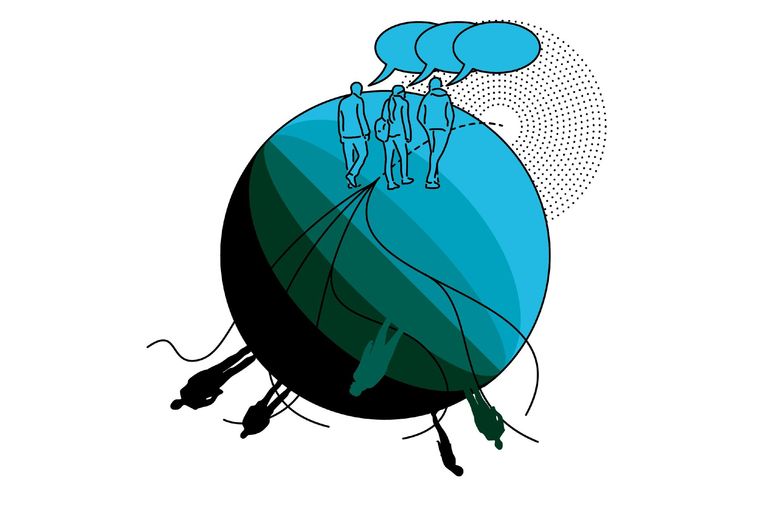Gemeinsame Werte, Visionen und Wege zur Nachhaltigkeit

Anhand von sechs prioritären Themen legt das «Whitepaper Nachhaltigkeitsforschung» den dringendsten Forschungsbedarf der Schweiz im Hinblick auf die Erfüllung der UNO Nachhaltigkeitsziele dar.
«Nachhaltigkeit» ist keineswegs ein objektiv definiertes Konzept, sondern wird durch Annahmen, Diskurselemente, Werte und Paradigmen definiert, von denen viele implizit und sogar widersprüchlich sind. Diese müssen identifiziert und diskutiert werden, um eine gemeinsame Vision für eine nachhaltige Zukunft zu entwickeln – und einen gemeinsamen Weg, wie diese Zukunft erreicht werden kann. Die wissenschaftliche Gemeinschaft kann diesen gesellschaftlichen Prozess mit kollaborativer und integrativer Forschung unterstützen.
Key unresolved questions
Whitepaper Nachhaltigkeitsforschung lesen:
Podcast zu nachhaltigen Zukunftsvisionen - so könnte unser Leben im Jahr 2035 aussehen (Gemeinsame Werte, Visionen und Wege zur Nachhaltigkeit)
Wie können wir nachhaltiger leben ohne massiven Verzicht ? Wie kann unser Leben klimaneutraler aussehen? Können wir einen neuen Konsens über die Erfüllung der legitimen Bedürfnisse aller Menschen finden und gleichzeitig das Klima und unsere Umwelt schützen? Die wissenschaftliche Gemeinschaft kann diesen gesellschaftlichen Prozess mit kollaborativer und integrativer Forschung unterstützen. Wie das Alltagsleben, die Energieverwendung und unser Wohlbefinden in Zukunft aussehen könnte, dazu forscht das Institut für Sozialforschung in Genf. Mithilfe von Personas hat das Forschungsteam unter der Leitung von Prof. Dr. Marlyne Sahakian Lebensbeispiele geschaffen, die ein klimaneutraleres Leben im Jahr 2035 darstellen.
Orlane Moynat ist Doktorandin an der Universität Genf sowie Forschungs- und Lehrassistentin. Sie arbeitet gemeinsam mit Antonietta Di Giulio, die in Basel als Forscherin für Inter- und Transdisziplinarität und Fragen zur Nachhaltigkeit beantwortet. Beide haben ein gleiches Credo: «Auf Dauer zu verzichten, kann nicht die Lösung sein. Wir müssen Alternativen schaffen, die für uns KonsumentInnen einen Kompromiss bieten, bei dem wir unser Bewegen und Reisen gleichermassen geniessen können.»
In diesem Audiobeitrag erfahren Sie von Antonietta di Giulio, warum es so wichtig ist, dass wir in Bezug auf die Nachhaltigkeit mehr von “Beschränkung” als von “Verzicht” sprechen und dass wir uns selbst nichts vorschreiben oder gar bewerten sollten.
Dieser Audiobeitrag wurde von Studierenden des Studiengangs Multimedia Production im Modul Corporate Communications an der Berner Fachhochschule erstellt. Die Multimediaprojekte entstanden im Rahmen einer Zusammenarbeit zwischen dem WWF Schweiz und den drei Multimedia Production Klassen der Fachhochschulen Graubünden und Bern.
